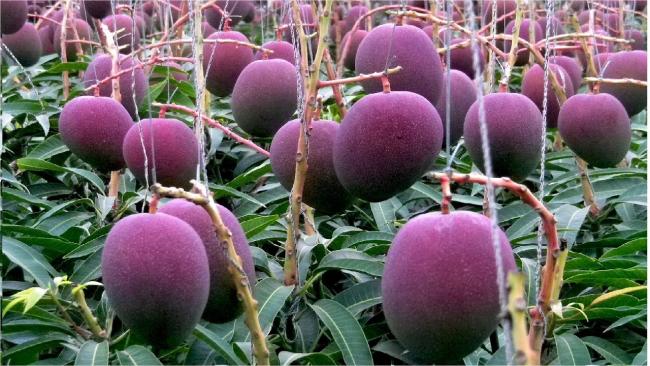You Know How Much World's Most Expensive Mango Japanese Miyazaki Costs?

You will be surprised to know just how costly one kilogram of mangoes was. Many fruits do not grow easily and hence they are costly. Sometimes the difficult export and import from other countries end up in an increased cost of these fruits and vegetables.
One such fruit that is extremely costly and rare is the Japanese Miyazaki. A couple in Madhya Pradesh has two trees of this fruit. As it is rare and costly, the chances of someone trying to steal it is also really high. That is why the couple hired four guards along with six dogs to keep a check on the mango trees. But these trees also have a really different story. It is amazing how life can surprise you.
Talking about what happened years ago, the couple shared that a long time ago when they were travelling to Chennai, a stranger on the train gave them these saplings. The man asked them to take care of these saplings and treat them like their babies.
The couple Rani and Sankalp Parihar when planting these saplings, had no idea what these will turn into. Years later, these saplings grew into the Japanese Miyazaki mango trees. The couple didn’t know what they were planting and now they have two trees of the beautiful ruby-coloured mangoes. These are a rare breed of mangoes and are sold at a really high rate in the market. After a lot of research, they got to know about the trees and their value.
Also Read: Coconut Embryo For Antiviral Properties and Boosting Immunity
Last year, one kilogram of these mangoes sold at a whopping ₹2.70 lakh. It is also called the egg of the sun. Soon enough, everyone in the couple’s neighbourhood got to know about the trees and their rarity. Last year, few thieves attempted to steal the mangoes. They broke into the orchard and stole the mangoes. Even when the couple lost a few mangoes, they were able to protect the trees and now they have even deployed guards for it.
Sankalp and Rani did not sell any mangoes as of yet. They shared that they received many offers from across the country, but decided not to sell them yet. They will grow them for now.




